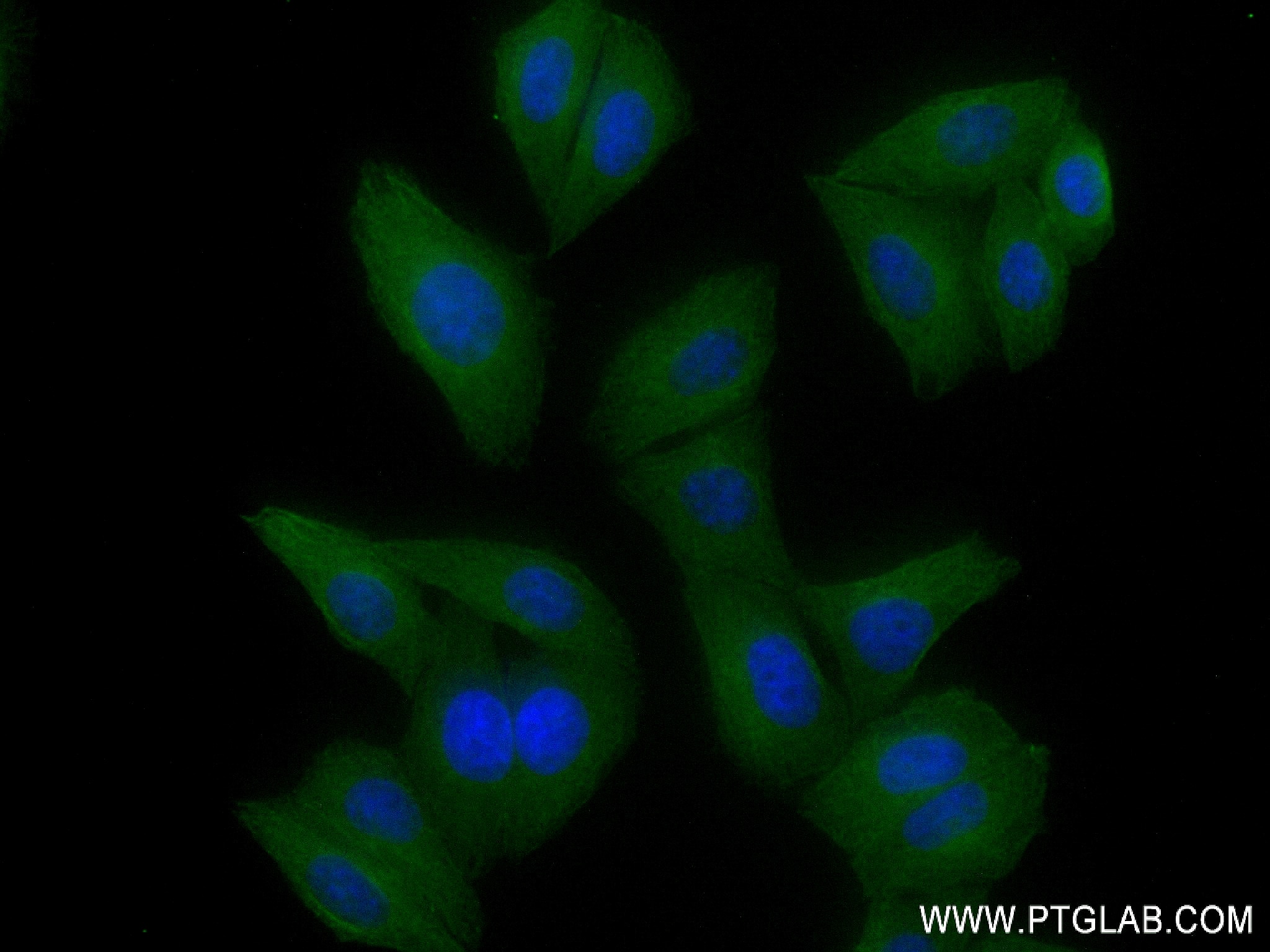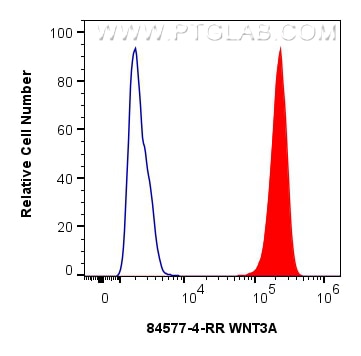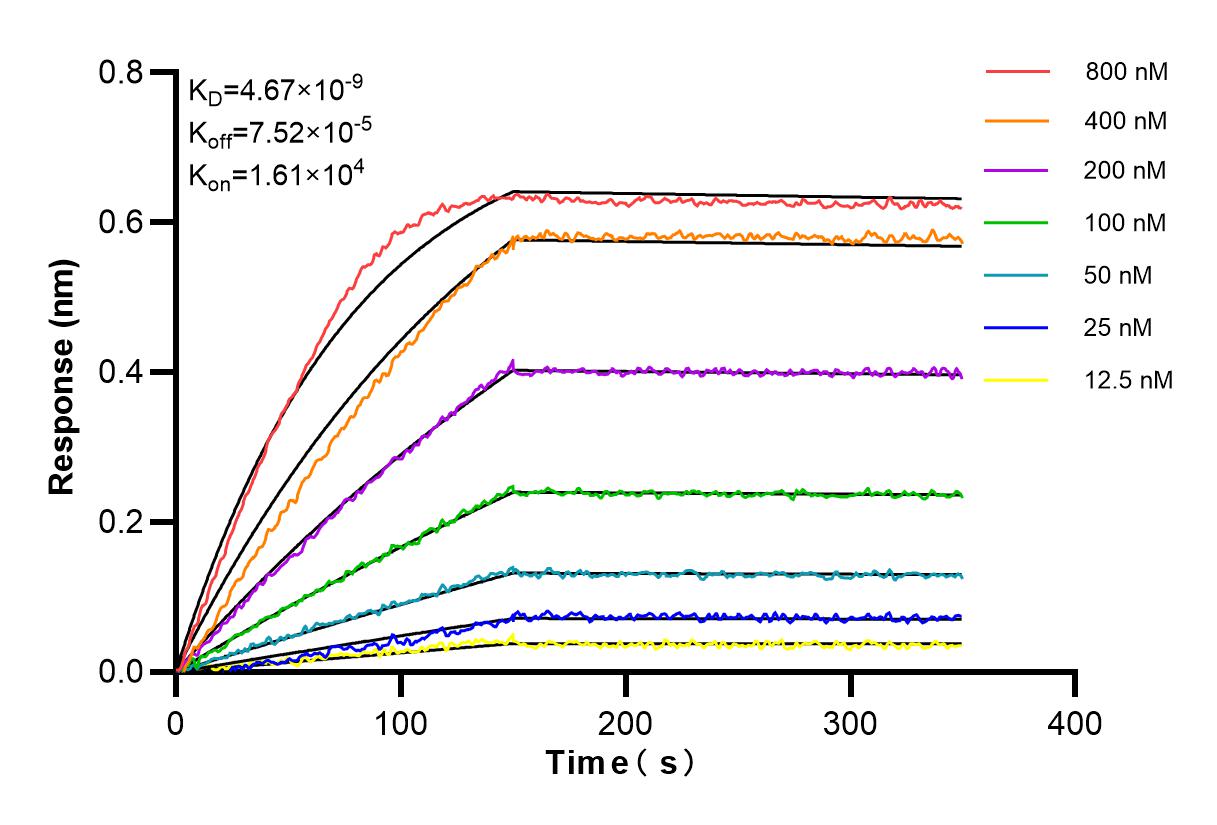Tested Applications
| Positive FC (Intra) detected in | HeLa cells |
Recommended dilution
| Application | Dilution |
|---|---|
| Flow Cytometry (FC) (INTRA) | FC (INTRA) : 0.25 ug per 10^6 cells in a 100 µl suspension |
| It is recommended that this reagent should be titrated in each testing system to obtain optimal results. | |
Product Information
84577-4-PBS targets WNT3A in IF/ICC, FC (Intra), Indirect ELISA applications and shows reactivity with human samples.
| Tested Reactivity | human |
| Host / Isotype | Rabbit / IgG |
| Class | Recombinant |
| Type | Antibody |
| Immunogen |
CatNo: Ag25051 Product name: Recombinant human WNT3A protein Source: e coli.-derived, PET30a Tag: 6*His Domain: 250-350 aa of BC103921 Sequence: RGWVETLRPRYTYFKVPTERDLVYYEASPNFCEPNPETGSFGTRDRTCNVSSHGIDGCDLLCCGRGHNARAERRREKCRCVFHWCCYVSCQECTRVYDVHT Predict reactive species |
| Full Name | wingless-type MMTV integration site family, member 3A |
| Calculated Molecular Weight | 352 aa, 39 kDa |
| GenBank Accession Number | BC103921 |
| Gene Symbol | WNT3A |
| Gene ID (NCBI) | 89780 |
| Conjugate | Unconjugated |
| Form | Liquid |
| Purification Method | Protein A purfication |
| UNIPROT ID | P56704 |
| Storage Buffer | PBS only, pH 7.3. |
| Storage Conditions | Store at -80°C. |
Background Information
WNT3A belongs to wingless-type MMTV integration site family, and abnormal Wnt signalling is often associated with severe human diseases, including cancer, osteoporosis and other degenerative disorders. WNT3A is a secreted glycoprotein that is involved in both canonical and non-canonical Wnt signaling pathways. The canonical Wnt pathway, also known as the β-catenin-dependent pathway, regulates gene expression by stabilizing β-catenin, which then translocates to the nucleus and interacts with transcription factors like TCF/LEF. It's shown to promote trophectoderm formation in embryonic stem cells. It's reported that the canonical Wnt/β-catenin signaling pathway also contributes to the carcinogenesis and progression of lung cancer cell lines. The non-canonical pathways, which are β-catenin-independent, are involved in cytoskeletal organization and cell polarity.
Protocols
| Product Specific Protocols | |
|---|---|
| FC protocol for WNT3A antibody 84577-4-PBS | Download protocol |
| Standard Protocols | |
|---|---|
| Click here to view our Standard Protocols |










